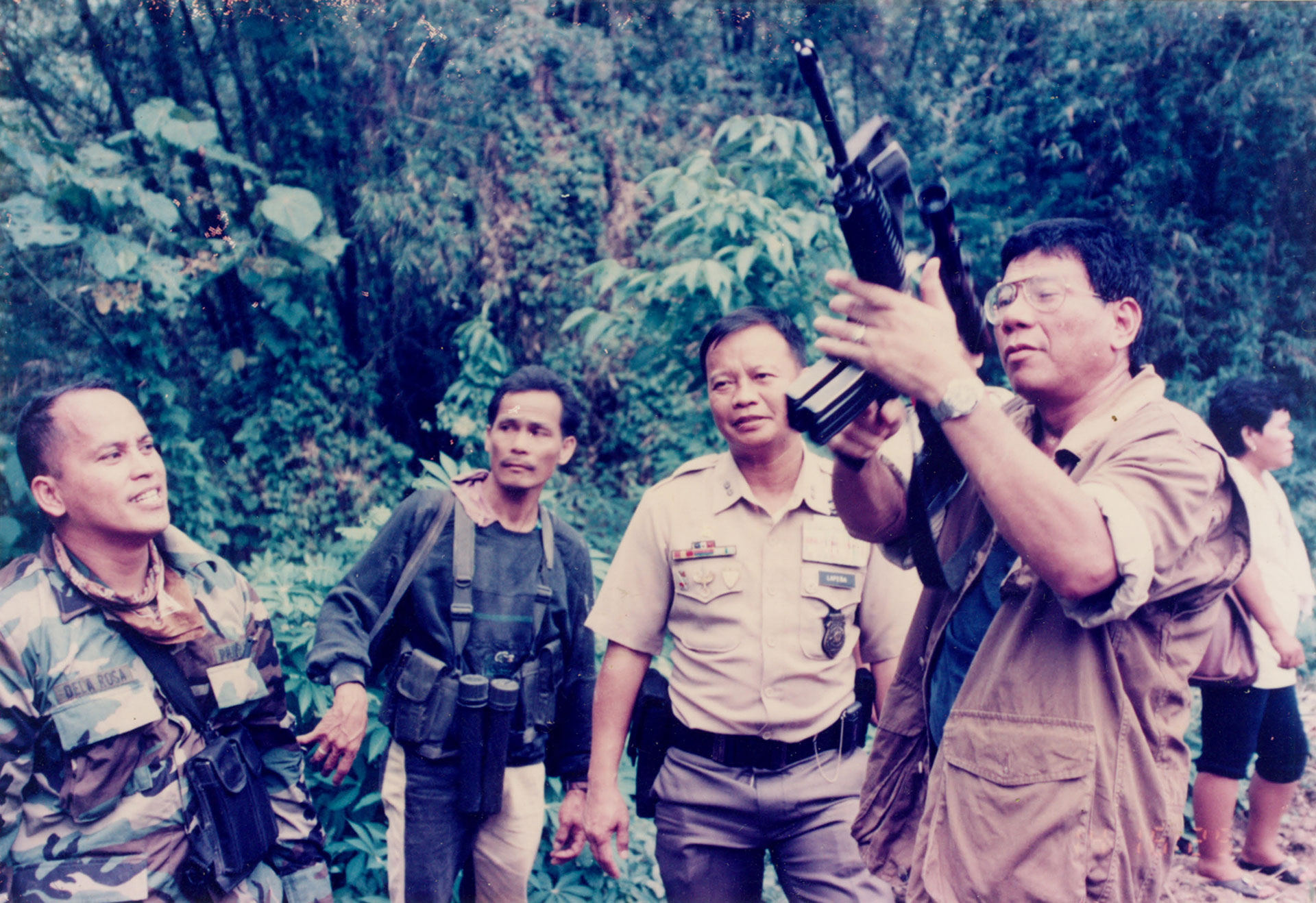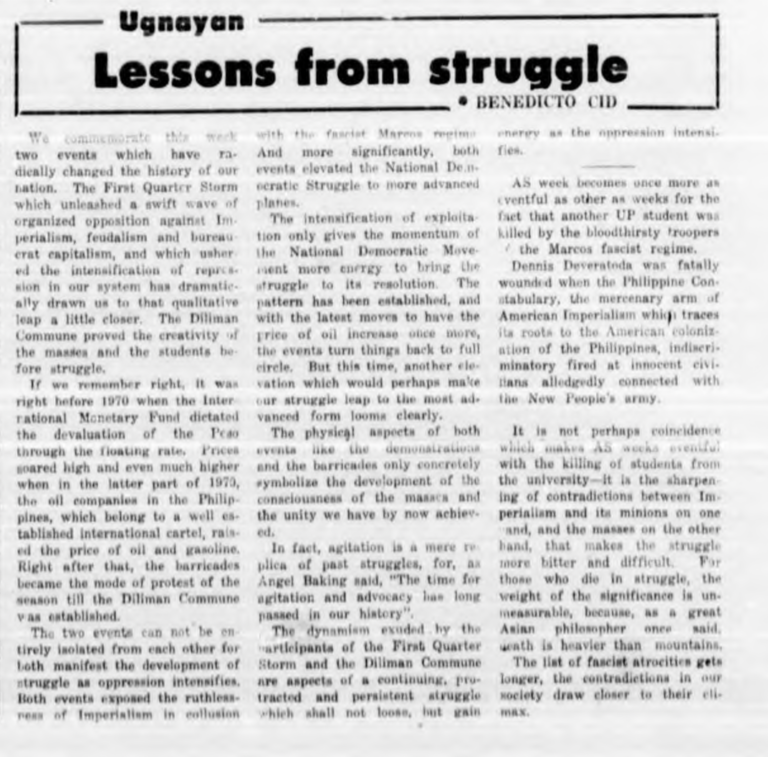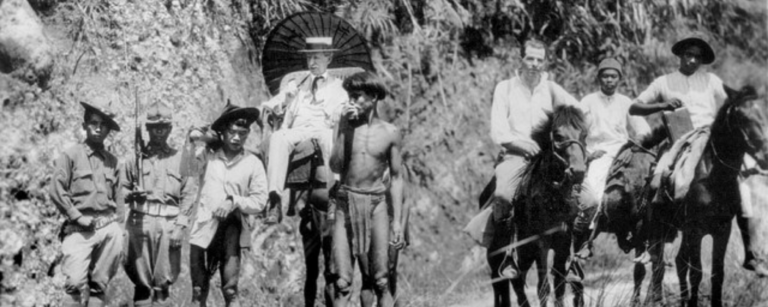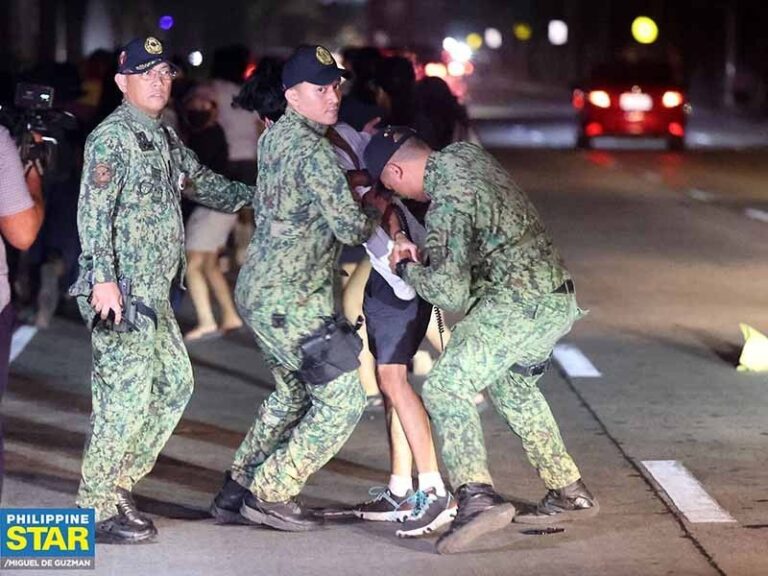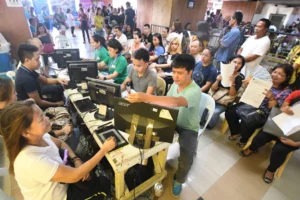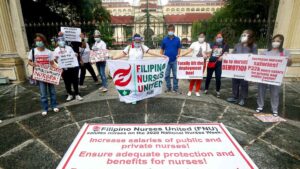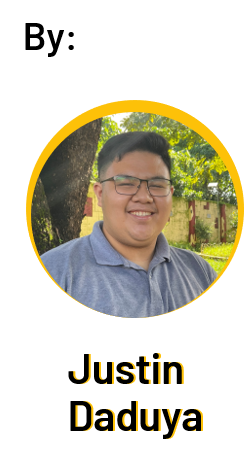
President Duterte and his Davao Boys rose to power on the shoulders of Filipinos raging against the system — the same system they now defend and exploit. It is now up to the people that they deceived, manipulated, and betrayed to bring them back down.
When he ran in 2016, Duterte promised to dismantle the oligarchy while pitting himself as the populist answer to PNOY’s prim-and-proper politicking. Now, more than five years later, the poor are barely surviving while the oligarchy is alive and well.
We are still in chains, and only one thing has changed — the hands that grip the other end.
We now have less than a year to go before the next presidential election. Duterte is desperately clinging to power, either through proxies or finding a way to run himself. He has built a terrifying cult of personality, dubbing himself as the Messiah for his avid supporters, the only solution to crime and corruption. But his political style remains the same: a page out of the populist playbook, presenting the same promises and pitfalls.
The populist power-grab is simple, always divided into three parts. First, they channel the people’s fear and resentment against the ruling classes, showing how the current rulers are either enablers of the elite or are part of it themselves. Then, they establish how exactly they are different, and why they are part of the people. Finally, they propel themselves to power, propped up on the shoulders of a bloodlust-driven populace eager to topple the system and hungry for change.
Aquino and Roxas, both sons of long-time dynasties, became poster children for the almost century-long failure of the Philippine government. Duterte, on the other hand, presented himself as a superman from the south despite being part of a dynasty himself — or that he endorsed them just six years prior. Now, fuelled by the failure of all-too-familiar faces, Duterte is president, but only the faces have changed; all of the failures remain.
PNOY’s group is gone, but Duterte’s Davao boys are now in control. Old classmates control the economy. Loyal military men sit on powerful civilian posts. Even his executive assistant is now a senator surrounded by speculations of a presidential or vice-presidential bid. He has built a tight inner circle enforcing his iron-fisted regimes — like Hitler’s circle of evil or Marcos’ Rolex 12. These are the people who would die — although kill is much more likely — for him. These are also the people that wreak the most havoc and reap the most benefits.
This group includes some of the most powerful people in government. Executive Secretary — the leader of the Cabinet — Salvador Medialdea is one. Defense Secretary and Inter-Agency Task Force chairman Delfin Lorenza is another. Some of the most problematic people are in the group, too. Names like Philhealth CEO Dante Gierran and former Bureau of Customs chief Isidro Lapena call into question the president’s promise to ax officials with even a whiff of corruption, especially when the stench comes from those sitting right next to him.
Duterte’s drive to keep the power within his circle of Davaoeño drinking buddies is a main reason for his failure to fulfill his campaign promises.
His promise to end the insurgency problem failed because instead of finding the best people and fielding research-backed decisions, he stayed with what he knew best, how he ran things in Davao. His promise to end the drug trade failed because people within his own inner circle — within his own family, even — are linked to billion dollar drug deals. Most blatantly, his promise to end corruption failed because he cannot promise justice without exposing the people he trusts most.
Today’s new oligarchy proves what literature and history have always taught. As George Orwell put it: “We know that no one ever seizes power with the intention of relinquishing it. Power is not a means; it is an end.” When ambitious people name supervillains and call themselves supermen, they are never the heroes of the story. They are just as dangerous — perhaps even more so because their intentions are dressed up in promises of coming change, and their actions are backed up by the oppressed masses that they exploit.
By replacing the old elite with the new, he has done nothing for his supporters except betray them. A Filipino free from his chains is not one wallowing in poverty. Although government numbers for poverty incidence are down, almost half of all Filipino families now consider themselves poor.
A worker free from oligarchic manipulation is not one bending over backward for a job, but the Philippines had the biggest unemployment spike among ASEAN member-states. The Philippines free from elite exploitation is not one with a sinking economy, but the country is experiencing its worst economic drop ever and is one of the worst-hit in the world during this pandemic.
Still, Duterte boasts one of the highest approval ratings for an outgoing president. Many still cling to the hope for change to come — a change that is not coming. It is a byproduct of decades of the same cycle: of administrations promising change, rising to power, and forgetting the people that brought them there in the first place. The Filipino is then left with nothing to do but to bet on candidates, hoping desperately that the next one is better than the last.
As long as a society depends on “supermen” it will always end up not only disappointed but driven further under the boot of its oppressors. Populist promises, no matter how appealing, will always remain vulnerable to the pitfalls of power. Duterte and the Davao boys are prime examples. It is time to end their reign and never let it happen again. We must never forget: in this tug-of-war, where oppressors fight over who gets to keep us like dogs on leashes, the only hands interested in our freedom are our own.
Featured image courtesy of Reuters.


